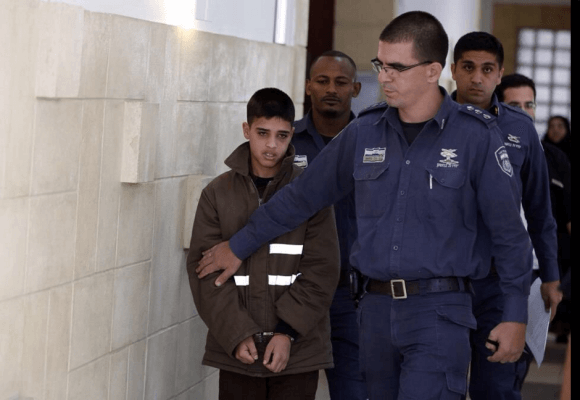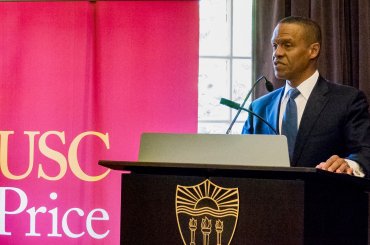Worldwide clamor to immediately release the 20-year-old Palestinian youth Ahmad Manasra from Israeli prison has gathered momentum through an international campaign initiated by the Palestine-Global Mental Health Network (PGMHN) in conjunction with international solidarity groups, the UK-Palestine Mental Health Network, the USA-Palestine Mental Health Network, the France-Palestine Mental Health Network, the Ireland-Palestine Mental Health Network, and the South Africa-Palestine Mental Health Network. An online public petition demanding his release has now gathered over 405,000 signatures.
Imprisoning a child
Ahmad Manasra at the age of 13 was involved in an episode of significant violence. Videos taken at the scene show the injured child lying on the ground with a bleeding head wound and document subsequent mistreatment by Israeli authorities. Following brain surgery for subdural hematoma suffered on that occasion, Ahmad was interrogated in handcuffs while lying in his hospital bed. The trial was purportedly postponed until Ahmad was 14, in order to allow the authorities to try this child with imposition of the maximum punishment. Ahmad was eventually sentenced to 12 years imprisonment, which was later reduced to 9 years. Lengthy periods of solitary confinement have ensued—at the current moment, Ahmad has been in solitary confinement for seven months.
There is deep concern that Ahmad has been suffering from a serious mental illness for the past two years. Despite various visits by Israeli prison psychiatrists and periodic admissions to prison hospitals as recently as June 15, 2022, Ahmad’s psychological condition continues to deteriorate. The report from Ahmad’s legal defense team on June 17th of this year indicates that his psychological condition was so grave that he was unable to communicate with them. Amnesty International has issued a damning indictment of Ahmad’s plight, published last week.
A growing protest
The case of Ahmad Manasra was originally brought to the attention of PGMHN and its supporting international Networks some months ago by the Palestinian legal scholar and activist Dr. Nadera Shalhoub-Kevorkian, who has been at the forefront of longstanding campaigns against the Israeli abuse of children and youth. The Networks then initiated the petition demanding the immediate release of Ahmad to his family. On April 13th, 2022, Ahmad’s next court appearance, the court returned a favorable judgment, permitting Ahmad to be considered for a potential future legal decision regarding release from prison, having already served two thirds of his sentence. We believe that awareness of the already burgeoning international protest had a constructive impact on the court’s April decision.
Dr. Kevorkian, working with colleagues in Palestine, the legal team defending Ahmad, and Ahmad’s parents, then determined that submitting a letter written by medical experts demanding his release might persuasively alert the court to expanding global outrage and generate additional public outcry.
The Medical Letter
On June 15, 2022, PGMHN hosted an online webinar “Abolish Incarceration of Palestinian Children: Call for Immediate Release of Ahmad Manasra,” to launch a Medical Letter to be presented by his legal team at the next court date in Israeli, signed by three Network psychiatrists with expertise in trauma, child development, brain injury, and the consequences of solitary confinement.
During the webinar, Ahmad’s parents spoke directly and eloquently about their son’s desperate emotional state and their fears for his life. Panelists in a discussion chaired by the psychoanalyst Dr. Heba Zaphiriou-Zarifi in the UK included three signers of the Medical Letter (Samah Jabr MD in Palestine, Brooke Maddux MD in France, and Elizabeth Berger MD in New York) as well as Dr. Gwyn Daniel in the UK and Dr. Nadera Shalhoub-Kevorkian in Palestine. The Medical Letter argued that Ahmad Manasra has not received necessary medical and psychiatric care during his long imprisonment and that various psychiatric medications had been used without consistent ongoing follow-up; doctors’ visits furthermore have taken place without appropriate communication with Ahmad in his native Arabic language or consideration of his cultural background.
The Network psychiatrists further noted that the 215-page prison medical record did not even mention the crucial issue of possible brain damage as an etiological factor implicated in Ahmad’s mental disturbance. In addition, solitary confinement itself is well-known to induce profound psychological disturbances, although the Israeli prison system continues to justify it in this case as allegedly protecting the inmate himself. The Medical Letter stressed in addition the grievous loss of normal ongoing family, community, and educational nurturance which imprisonment has inflicted on this young prisoner since the age of 13—as well as the severe physical and psychological traumas that have been endured throughout this period. The Letter quotes the conclusions of an Israeli psychiatrist who had evaluated Ahmad in October 2021, stating with vigor in her report that Ahmad must be released immediately to his family in order to prevent further psychological damage and to permit his recovery. Meanwhile repeated requests by independent Palestinian and Israeli physicians to examine Ahmad and assess his immediate status have been denied.
With his legal team now armed with the Medical Letter, Ahmad returned to court on June 19, 2022 but no final decision was reached. On June 22, the Israeli court ruled unfavorably on Ahmad Manasra’s case, deeming him guilty of “terrorism” and thus blocking the possibility of his early release from prison. Ahmad returns to the hellish circumstances of solitary confinement in the Israeli prison although his legal defense team plans to appeal the latest decision.
The context of state terror
Unfortunately, Ahmad Manasra is not alone. He is but one of many hundreds of youth detained by the Israeli authorities each year—a process in which children and adolescents are physically and psychologically tormented in inhumane circumstances without legal representation and on occasion indefinitely detained for their entire lifetimes. These children are routinely abused—often sexually abused—and systematically deprived of their rights under international law. Numerous humanitarian organizations have addressed the atrocities of Israeli detention of children, notably the meticulously argued and documented 2020 report by Save the Children.
Children are often abducted from their beds in nighttime incursions in response to Israeli suspicions that a family member has participated in activism, as a mode of community reprisal and intimidation. But the fundamental target of Israeli political and military violence is childhood itself. The imposed limitation of human movement, demolition of homes, assassination of community leaders and spokespersons, economic impoverishment, bombing of schools, hospitals, and universities, as well as daily pervasive humiliations, threats, and damage experienced by all Palestinians in one form or another—all of these familiar atrocities have the goal of weakening family cohesion and diminishing the potential for the next Palestinian generation to inherit its deserved human potential. The abuse of child detainees itself is but part of a larger systematic Israeli policy designed to destroy Palestinian resistance and indeed, to obliterate Palestinian society, history, identity, and systems of meaning.
We ask you to sign the petition to go on record with your resistance to this assault on human dignity.
This article was filed in conjunction with the UK-Palestine Mental Health Network, USA-Palestine Mental Health Network, and France-Palestine Mental Health Network.


